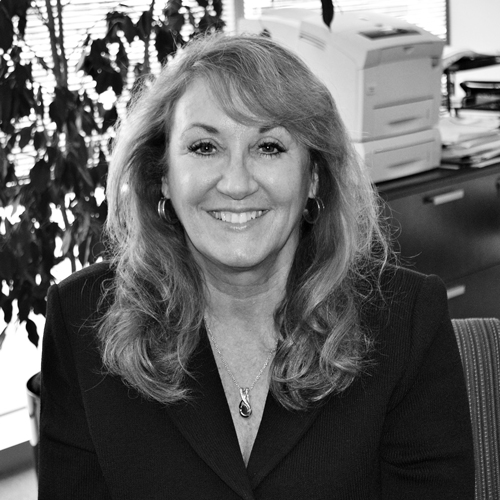When Jason Hillman and his wife moved from Detroit to Cleveland, they didn’t know what they were getting themselves into. The two came from a metropolis of more than 600,000 people to the Ohio city just over half that size. “We didn’t know what to expect,” Hillman says. “But once we got there, we realized what Cleveland has to offer.”
That list of offerings is a long one: top-ranked medical centers, a world-class theater district, popular sports teams, and a history rooted in rock and roll and America’s early westward expansion. “On and on,” he says, “I could go on forever.” When the Republican National Convention (RNC) comes to the city in 2016, Hillman believes every attendee will have that same realization. “People who don’t know Cleveland well will come here and walk away shaking their heads in surprise,” he promises. “It’s a great city. We just need to get them here.”
Hillman, vice president and general counsel for the Cleveland Cavaliers, is one of several Clevelanders, including a team from Quicken Loans Arena, who worked to promote their city to the Republican National Committee and its site selection team. Cleveland had presented a bid to host the 2008 convention but lost to Tampa, Florida, due in large part to limited hotel space. A number of construction projects have been completed since then, which the committee took into consideration for 2016. The committee started with a list of eight cities and eventually boiled it down to two, Cleveland and Dallas. Pundits weighed in on both sides as the team considered. The committee voted unanimously to host the RNC in Ohio, and committee chairman Reince Priebus announced the selection during a Fox News interview. “I will say it was a business decision; when it came down to hotels, the venue, the arena, it was unbelievable,” Priebus said in the segment.
Ohio is a famous battleground state in presidential elections; thus, many experts and even Priebus reflected that the choice of Cleveland—the seat of a county that voted for the Republican candidate in all but one presidential election from 1952 to 2004—over Dallas will give the GOP the chance to win crucial swing votes early. “In the end, as well, it’s Cleveland, Ohio, and as goes Ohio, so goes the presidential race,” Priebus said in the same interview. Ohio has voted for the victor of the past 13 presidential elections, and no Republican has ever won the White House without winning Ohio.
The effort to bring the convention to Cleveland, and to Ohio’s most populous county, was a bipartisan one. Mayor Frank Jackson, a Democrat, and Rob Frost, the county’s Republican Party chairman, were key in uniting local businesses and civic and political leaders in an effort to increase the city’s appeal. Hillman was in talks with local leaders as early as February 2014, when they realized Cleveland would have the opportunity to bid for the convention again. “It was one of the most inspiring, bipartisan, public/private, for-profit/nonprofit, joint-effort initiatives that I’ve ever been a part of,” Hillman says. “A very small part of,” he adds, though that’s likely selling himself short, since he manages legal matters for Quicken Loans Arena, the 2016 convention’s main venue.
The selection committee outlined its reasons for choosing Tampa for the last convention, so the Cleveland team had a clear list of what it needed to improve to win the opportunity to host: venue and hotel space, fund-raising, and timing. Rapid construction in Cleveland’s downtown had already largely addressed the space problem, and locals worked together quickly to raise funds. The next step was to offer something Dallas couldn’t: the ability to host the convention in mid-summer rather than in autumn. This was in line with a new and major strategy the GOP identified in 2012 to strengthen its eventual candidate. By having an earlier convention, the primary season would be shortened, limiting the amount of time candidates would have to debate one another, or, in less optimistic terms, to damage one another’s image. Many experts pointed to a long and passionate primary season in which Mitt Romney went head-to-head against Rick Santorum, Newt Gingrich, Michele Bachmann, and others as a reason his potential suffered even before he began campaigning against President Barack Obama.
Cleveland’s host committee originally offered June dates for the national convention, but that was before four-time NBA MVP LeBron James announced he would return to the Cavaliers, vaulting the basketball team into the favorites to reach the NBA finals in 2016. The league requires teams in the finals to keep their arenas, in this case the Quicken Loans Arena, available through the end of the finals, which typically conclude near the end of June. The Cleveland 2016 Host Committee now indicates the convention will take place in June or July.
As soon as Priebus announced Cleveland would host the convention, opinions about the decision began to pour in. Much of it was positive: the choice of a battleground state and a city that’s often gone blue seemed, to many, like smart political tactics.
The chief concern raised about Cleveland’s bid was the fund-raising the city promised it could manage before the convention. The host committee promised to raise $60 million to cover some convention costs. When the choice to host in Cleveland was announced, unofficial sources said between $25 and $30 million had been raised, and some argued that Dallas, which had already pledged nearly double that, would have been a better choice. Hillman’s response to this critique is direct: “We got it.” Fund-raising is a minimum requirement to secure the opportunity to host a convention, he points out. The critique that Cleveland won’t raise enough falls flat because the issue has long since been addressed, and a strategy has already been put in place by convention organizers.
The opportunity for Republican candidates to win hearts in a key state has been touted by many experts, but what are often overlooked are the positive effects hosting an event like this can drive in the host city. Conventions have, historically, been significant economic boons to the cities that have accommodated them. Projections in 2012 estimated that the RNC brought just under $200 million into the Tampa Bay area. “The opportunity to showcase Cleveland and northeast Ohio on an international stage is unprecedented,” Hillman says.
The assets that drew the Republican site selection committee—a recently constructed convention center and hotel space, diverse restaurant environment, and many other entertainment venues—will impress the tens of millions who have historically watched the convention, not to mention the tens of thousands who will attend in person. “We embrace it,” Hillman says. “We’re looking forward to showing off what we have here.”
In the months ahead, Hillman will handle any contractual issues that arise with the Republican National Committee. The main license agreement is already settled and signed, but organizers still have a lot to accomplish to ready the basketball stadium for the convention.
Hillman will work to make sure everything the arena committed to in its license agreement is carried out. “At this point, the heavy lifting on the agreement is done,” he says. “Now, it’s all about execution.”


